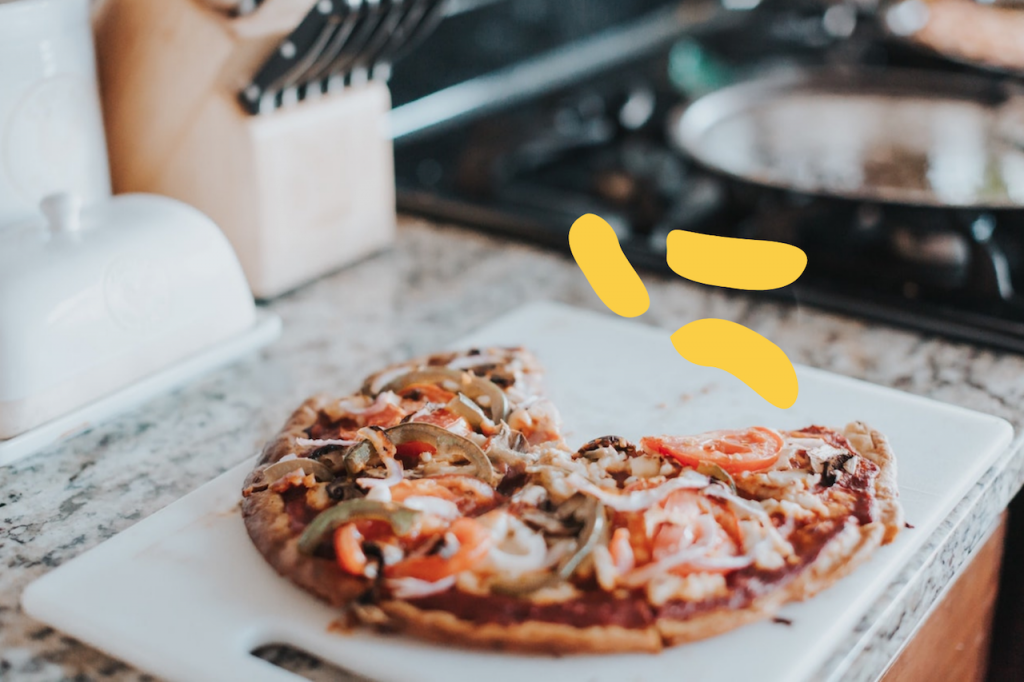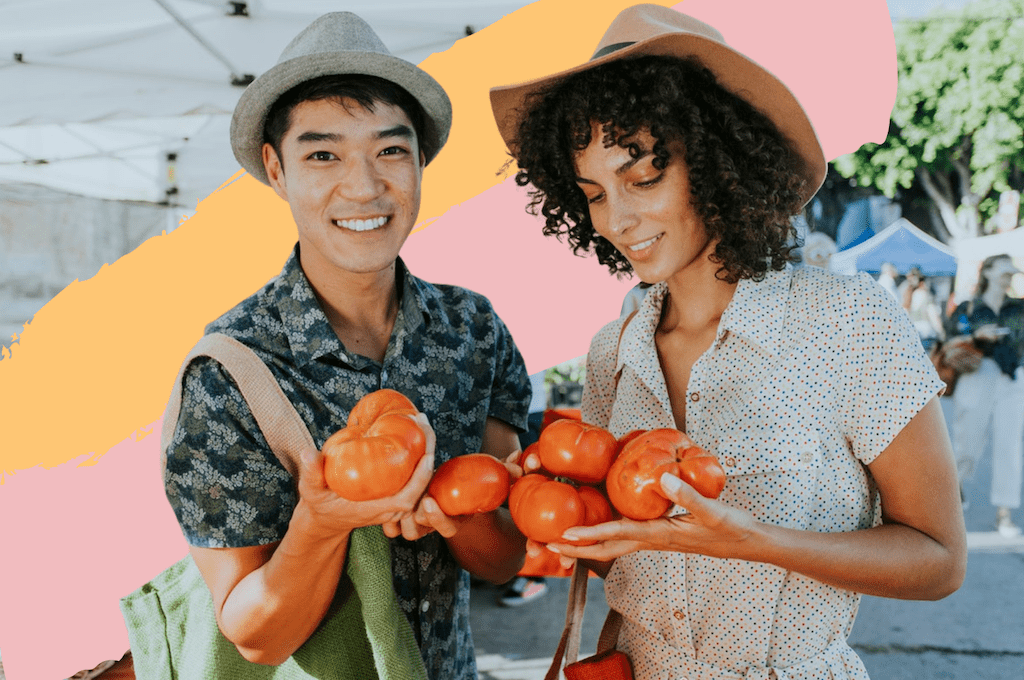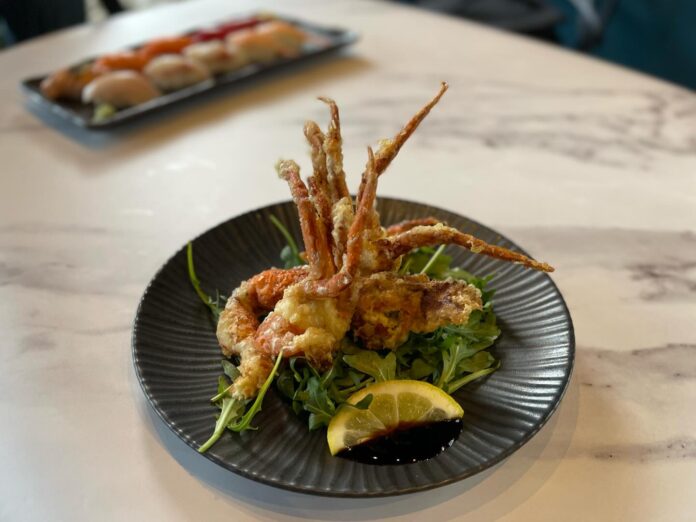Did you see that dolphin swimming in the canals of Venice? Did you notice the mercury dipping after years of incremental increases? Did you see nature frolicking in our absence, living its best life whilst we spent the last year indoors?
Nope, neither did we. In fact, claims of ‘nature healing itself’ in 2020 were dramatically over exaggerated, with experts reporting in August of last year that lockdown had had a ‘negligible’ effect on global temperatures.
According to Professor Piers Forster from the University of Leeds, it’s going to take more than the public locking down temporarily to arrest the dramatic effects of climate change. He says that ‘’Although temporary changes can help, you need to reduce CO2 permanently to make a dent in global warming.”
Yep, wholesale changes are needed, and this all starts with making moves towards a zero waste lifestyle. This doesn’t mean selling all your belongings and going to live off foraged berries somewhere remote for the rest of your life (although, actually, that sounds rather appealing right now).
Rather, it means making cumulative, purposeful changes with the goal of reducing your carbon footprint to zero. As the guys at www.beeco.green explain succinctly, this thing isn’t going to happen overnight; ‘’Zero-waste living is a journey, not a destination’’, as they say.
But how do you do just that? Well, according to a 2019 UN report on climate change, the Intergovernmental Panel on Climate Change has warned that ‘’Efforts to curb greenhouse-gas emissions and the impacts of global warming will fall significantly short without drastic changes in global land use, agriculture and human diets’’, and so it’s to our food shopping and eating habits that we’re looking today.
Some of the biggest ‘everyday’ changes you can make involve the way you interact with food, from the shopping and storing to the preparing of ingredients and the disposal of waste. With that in mind, here are 5 food shopping hacks to help on your journey to zero waste.
GO VEGAN
The amount of meat we eat is unsustainable and irresponsible, and something’s got to give. In fact, according to a 2018 report into man made impacts on the environment, avoiding meat and dairy is the single best thing you can do for the planet. This is because meat and dairy specifically accounts for around 14.5% of global greenhouse gas emissions, according to the UN’s Food and Agricultural Organization (FAO).
Making efforts to reduce your meat consumption is a start, but if you’re keen to live green and quicken your journey to a zero waste, then eating vegan is the best way to go.
Read: 7 IDEAL tips to help you on your journey to veganism in 2021.

KEEP IT LOCAL, KEEP IT SEASONAL
Another way to reduce your diet’s impact on the environment is to focus more of your shop on food what is currently in season and grown locally. If you have a hankering for asparagus in November, for instance, then it’s probably going to have travelled a really long way to reach you; that’s air miles racked up and a carbon footprint well and truly trodden.
Instead, go for foods that have taken the least possible distance to your door. They’re going to be fresher, taste better and potentially contain more nutrients, too. What’s more, if these ingredients have been grown locally, they may not need to use any plastic packaging between being picked from the ground and being sold to you at the farmer’s market or greengrocer. Which brings us to…
PLASTIC, PACKAGING & PURCHASING POWER
Does every banana really need to be sheathed in plastic when it has a peel to protect it? Do you need a plastic bag to carry your sandwich which already comes in a plastic container? Does each bundle of berries need a separate tub to transport it from the grower to your fridge?
In the UK, in 2019, the biggest ten supermarkets produced a whopping 896,853 tonnes of plastic, with 2.1bn plastic bags sold in these retailers. 1.58bn of these bags were “for life”, which are meant to be used time and time again. Clearly, they aren’t.
It seems that both the consumer and the supermarket need to change their behaviour, here. When buying your fruit and veg, opt to buy loose rather than packed to reduce your plastic consumption, and make an effort to shop at markets that don’t use plastic.
Make your voice heard by only supporting retailers who are trying to eliminate their use, taking a rucksack to the shops instead of paying for a bag, by boycotting places which, despite all the warnings, still aren’t acting responsibly. You can refer to Greenpeace’s plastic use by supermarket rankings to keep informed and make smarter consumer choices.
And if your local shop or favourite supermarket has refill stations, then take your own containers and help eliminate your own single-plastic use altogether.

GET FAMILIAR WITH FOOD LABELLING
According to scientists, around a third of all food produced in the UK is wasted, which is, frankly, a shocking statistic. When shopping for food, endeavour to buy only what you need, to avoid having an excess of ingredients which go past their best before you can eat them.
Speaking of which, follow the ‘use-by’ date on products, rather than the ‘sell-by’ or ‘best before’. As the Guardian points out, ‘’The use-by date concerns safety (ignore it and you could get food poisoning), while the best-before date is about quality (you’re probably fine to eat it afterwards; it may just no longer taste or look as good).’’
Some cynics have pointed out that the ‘best before’ label is simply a manipulative marketing ploy by major food retailers to encourage us to throw food out before it’s necessary, having to buy more than we need as a result. Instead, focus on ‘use-by’ dates, and if it makes sense within your weekly shop’s budget, only buy what you need on a specific day or week.
And all those bits that you thought you had to throw away, such as peels, pips, stalks and offcuts? You can even turn them into something delicious; check out these tips on what to do with the bits you normally throw away.
GROW YOUR OWN
The positives of growing your own produce at home are plentiful. You can exercise control over the pesticides, growth hormones and other chemicals used in crop production. What’s more, you can eliminate plastic use by simply strolling into your back garden and picking what you need with your hands.
Though it takes an extraordinary dedication for a UK resident to be totally self-sustainable on food grown in their own garden, a huge part of the benefits of ‘grow your own’ concern nurturing a mindset which is more respectful and appreciative of the earth. Doing so feeds into a more holistic approach to food shopping and consumption which can, in the long run, cultivate a more all encompassing zero waste mindset. And that’s what you’re here for, right?




